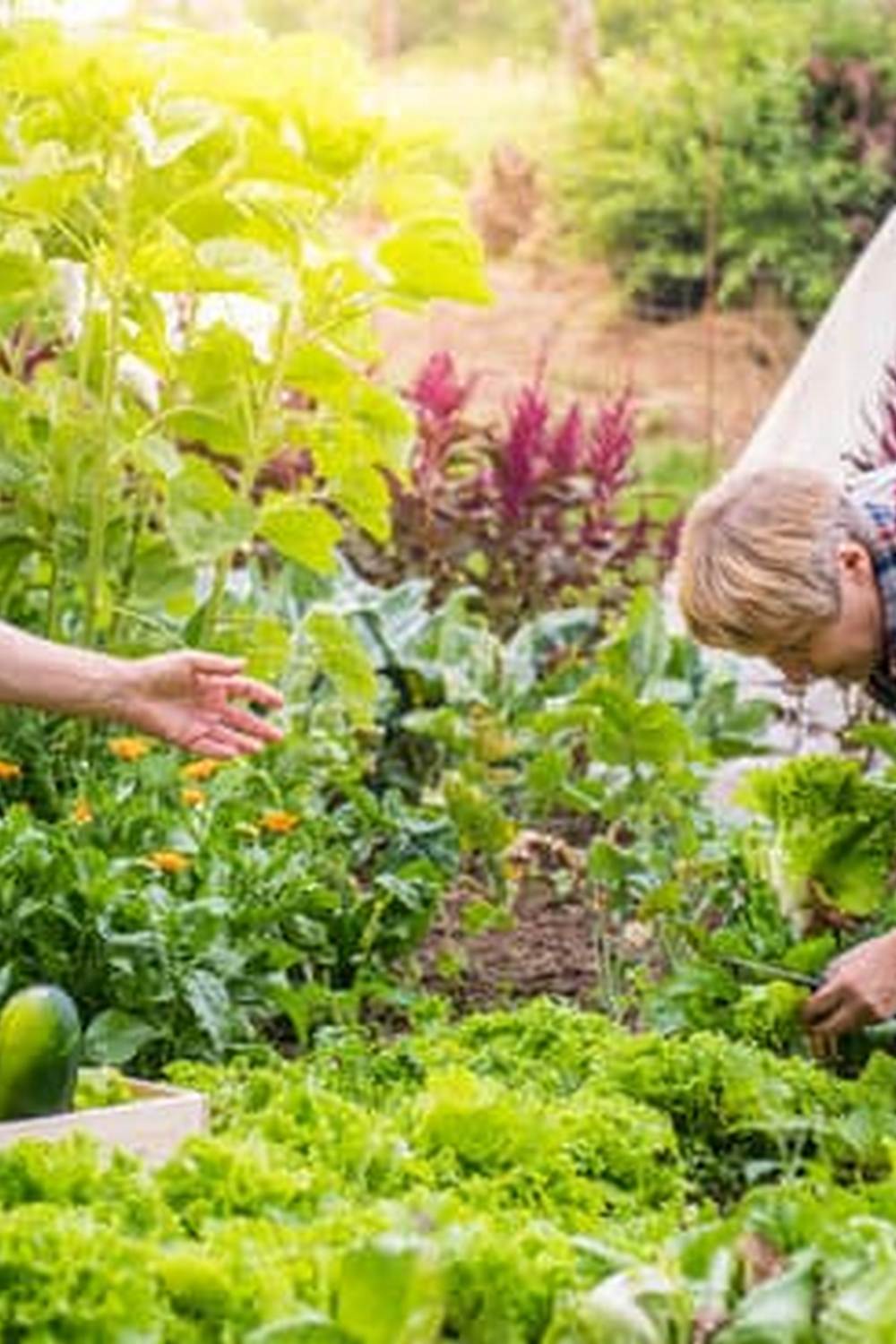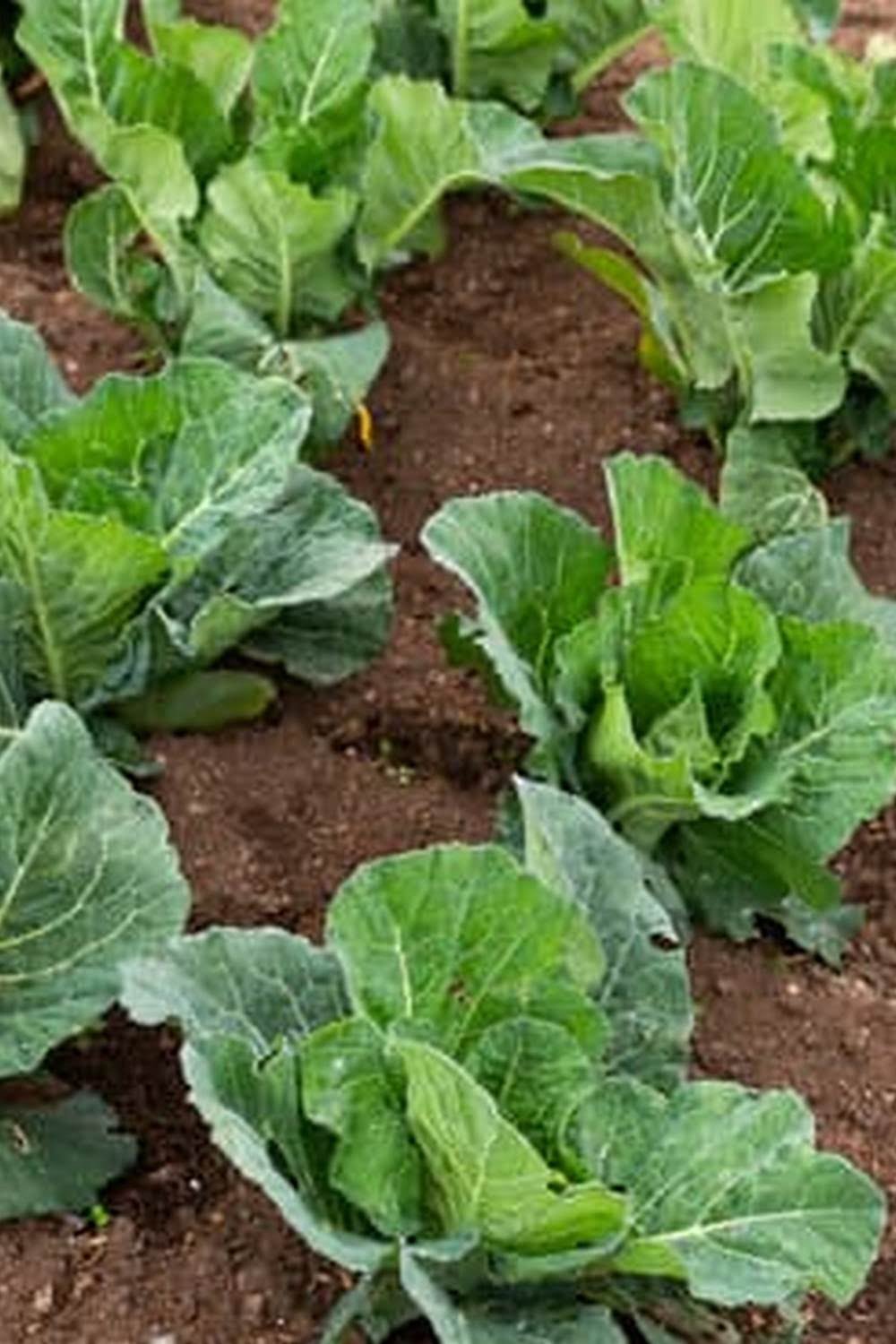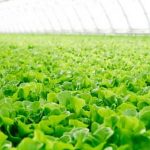Are you looking for the best natural fertilizer for vegetable gardens? Using natural fertilizers can significantly benefit the health and productivity of your vegetable garden. Natural fertilizers provide essential nutrients to plants without harmful chemicals, ensuring the production of nutrient-rich and chemical-free vegetables. In this article, we will explore the importance of using natural fertilizers in vegetable gardens, the benefits of doing so, and the different types of best natural fertilizers available.
Maintaining a healthy and thriving vegetable garden is essential for producing high-quality fruits and vegetables. Using the best natural fertilizer for vegetable gardens is crucial in achieving this goal. By incorporating natural fertilizers into your gardening routine, you can ensure that your plants receive essential nutrients such as nitrogen, phosphorus, and potassium in a safe and environmentally friendly manner.
Using natural fertilizer for vegetable gardens comes with several benefits. Natural fertilizers enhance soil fertility, promote healthy plant growth, improve soil structure, encourage beneficial microorganisms, and reduce the risk of water pollution. Additionally, natural fertilizers contribute to sustainable gardening practices by promoting eco-friendly methods of cultivation and reducing chemical runoff into water sources. With these benefits in mind, it’s clear that using natural fertilizers is a win-win situation for both your garden and the environment.
Benefits of Using Natural Fertilizer for Vegetable Gardens
Using natural fertilizer for vegetable gardens offers a variety of benefits that can lead to healthier, more bountiful crops. Unlike synthetic fertilizers, natural fertilizers are derived from organic materials and are gentler on the soil and environment. In this section, we will explore the numerous benefits of using the best natural fertilizer for vegetable gardens.
Improves Soil Health
One of the key benefits of using natural fertilizer is its ability to improve soil health. Natural fertilizers contain a wide range of nutrients and organic matter that are essential for maintaining nutrient-rich soil. These nutrients help to promote beneficial microbial activity, improve soil structure, and enhance water retention, all of which are crucial for healthy plant growth.
Promotes Sustainable Gardening
By choosing natural fertilizers for your vegetable garden, you are taking a step towards sustainable gardening practices. Unlike synthetic fertilizers, which can have long-term detrimental effects on the environment, natural fertilizers are renewable and biodegradable. They support the overall health of the ecosystem by promoting biodiversity and minimizing chemical runoff into water sources.
Enhances Plant Nutrition
Natural fertilizers provide a well-balanced source of nutrients that are readily available to plants. These essential nutrients, such as nitrogen, phosphorus, and potassium, play a vital role in supporting plant growth and development. By using the best natural fertilizer for vegetable gardens, you can ensure that your plants receive the necessary nutrients they need to thrive throughout the growing season.
Types of Best Natural Fertilizers for Vegetable Gardens
When it comes to choosing the best natural fertilizer for vegetable gardens, there are several options available that can provide the essential nutrients needed for healthy plant growth. Here are some of the best types of natural fertilizers to consider for your vegetable garden:
Organic Compost
One of the best natural fertilizers for vegetable gardens is organic compost. Compost is made from decomposed organic matter such as kitchen scraps, yard waste, and other biodegradable materials. It is rich in essential nutrients like nitrogen, phosphorus, and potassium, making it an excellent choice for promoting healthy soil and plant growth.
Manure
Another great option for natural fertilizer is manure from animals such as cows, horses, chickens, or rabbits. Manure is a rich source of nutrients and organic matter that can improve soil structure and enhance the health of your vegetable plants. However, it’s important to use aged or composted manure to avoid any potential risks of pathogens or odors.
Bone Meal
Bone meal is a natural fertilizer made from finely ground animal bones and it’s high in phosphorus and calcium which are essential for healthy root development and overall plant growth. It’s an ideal choice for promoting strong root systems in vegetable plants and can be added to the soil before planting or used as a top dressing during the growing season.
By incorporating these types of natural fertilizers into your vegetable garden, you can provide your plants with the essential nutrients they need to thrive without relying on synthetic chemicals or additives. Whether you choose organic compost, manure, bone meal, or a combination of these options, using natural fertilizers can help improve soil fertility and produce healthier, more abundant crops.
Homemade Natural Fertilizer Recipes for Vegetable Gardens
When it comes to maintaining a healthy and flourishing vegetable garden, using the best natural fertilizer for vegetable gardens is crucial. While commercial organic fertilizers are readily available in the market, many gardeners prefer to make their own homemade natural fertilizers. Not only are these DIY fertilizers cost-effective, but they also allow gardeners to have complete control over the ingredients used.
One of the best natural fertilizer recipes for vegetable gardens is compost tea. Compost tea is made by steeping compost in water and then using the resulting liquid to water plants. This nutrient-rich liquid is filled with beneficial microorganisms that help improve soil structure and promote healthy plant growth. Another popular homemade natural fertilizer is manure tea, which involves soaking aged manure in water to create a potent liquid fertilizer high in nitrogen and other essential nutrients.
Using homemade natural fertilizers not only provides plants with the necessary nutrients but also improves overall soil health. Additionally, these DIY fertilizers reduce waste by utilizing kitchen scraps and yard waste, making them an eco-friendly choice for sustainable gardening practices.
| Natural Fertilizer Recipe | Benefits |
|---|---|
| Compost tea | Improves soil structure, promotes healthy growth |
| Manure tea | High in nitrogen and essential nutrients |
Organic vs Synthetic Fertilizers
When it comes to choosing the best natural fertilizer for vegetable gardens, one of the key decisions gardeners face is whether to use organic or synthetic fertilizers. Both options have their own set of pros and cons, but understanding the differences between the two can help you make an informed decision for your vegetable garden.
Organic fertilizers are derived from natural sources such as compost, manure, bone meal, and seaweed. These fertilizers are rich in essential nutrients and improve soil structure, which promotes healthy plant growth. On the other hand, synthetic fertilizers are made from chemical compounds and are designed to deliver specific nutrients to plants efficiently.
Benefits of Organic Fertilizers:
Benefits of Synthetic Fertilizers:
Homemade Natural Fertilizer Recipes for Vegetable Gardens:
1. Compost Tea: Combine compost with water and let it steep for a few days. Use this nutrient-rich liquid to water your vegetable plants.
2. Banana Peel Fertilizer: Chop up banana peels and bury them around the base of your vegetable plants. As they decompose, they release potassium and other important nutrients.
3. Epsom Salt Solution: Dissolve Epsom salt in water and use it as a foliar spray or soil drench to provide magnesium to your vegetable plants.
Ultimately, the choice between organic and synthetic fertilizers will depend on your gardening goals, budget, and personal preferences. Regardless of which option you choose, using the best natural fertilizer for your vegetable garden will contribute to a healthier environment and produce nutritious crops.
How to Apply Natural Fertilizer to Vegetable Gardens
When it comes to applying natural fertilizer to your vegetable garden, there are a few key techniques to keep in mind to ensure the best results for your plants. One of the most important factors is timing.
It’s crucial to apply natural fertilizer at the right time in order to support healthy growth and maximize nutrient absorption. Most experts recommend applying natural fertilizers at the beginning of the growing season, as well as throughout the growing period for sustained nourishment.
Another important aspect of applying natural fertilizer is distribution. It’s essential to evenly distribute the fertilizer around each plant, being careful not to overcrowd or concentrate it in one area. This can help ensure that all plants receive equal access to essential nutrients, promoting balanced growth across your vegetable garden.
Lastly, consider incorporating a layering technique when applying natural fertilizer. By layering organic matter such as compost with other natural fertilizers, you can create a holistic approach that provides a diverse range of nutrients and promotes overall soil health. This technique also aids in retaining moisture and preventing erosion within your vegetable garden soil.
| Key Techniques | Description |
|---|---|
| Timing | Apply natural fertilizers at the beginning of the growing season and periodically throughout. |
| Distribution | Evenly distribute fertilizer around each plant and avoid concentration in one area. |
| Layering | Incorporate organic matter with natural fertilizers for diverse nutrients and improved soil health. |
Best Practices for Using Natural Fertilizer in Vegetable Gardens
When it comes to using natural fertilizer in vegetable gardens, there are some best practices that can help maximize its benefits and ensure the health of your plants. Whether you’re new to natural gardening or looking to improve your current practices, following these tips can make a significant difference in the success of your vegetable garden.
Here are some best practices for using the best natural fertilizer for vegetable gardens:
1. Proper Application Techniques: When applying natural fertilizer, it’s important to follow the recommended guidelines for each type of fertilizer. For example, compost should be applied in a thick layer on the soil surface and then gently mixed into the top few inches of soil. Liquid organic fertilizers should be diluted according to instructions and applied directly to the base of plants.
2. Timing is Key: It’s crucial to apply natural fertilizer at the right time to maximize its effectiveness. For example, adding compost in the fall allows it to break down over the winter, enriching the soil before planting in spring. Some organic fertilizers may need multiple applications throughout the growing season to support healthy plant growth.
3. Maintain Nutrient Balance: Different vegetables have varying nutrient needs, so it’s essential to understand the nutritional requirements of your specific crops. Using a combination of natural fertilizers such as compost, manure, and organic liquid fertilizers can help maintain a balanced nutrient profile in your vegetable garden.
By following these best practices, you can ensure that you are getting the most out of the best natural fertilizer for vegetable gardens and giving your plants the nutrients they need to thrive.
Top Tips for Maintaining Nutrient-Rich Soil in Vegetable Gardens
One of the most important aspects of maintaining a healthy vegetable garden is ensuring that the soil remains nutrient-rich. Without proper nutrients, plants may struggle to grow, produce high yields, or resist pests and diseases. In this section, we will explore some top tips for maintaining nutrient-rich soil in your vegetable garden.
One of the best ways to keep your soil nutrient-rich is by using the best natural fertilizer for vegetable gardens. Natural fertilizers, such as compost, manure, and bone meal, are rich in essential nutrients that can improve soil fertility and promote healthy plant growth. These organic options also help to improve the soil structure and microbial activity, creating a sustainable and balanced environment for your vegetables to thrive.
In addition to using natural fertilizers, it is crucial to practice crop rotation in your vegetable garden. Planting different crops in the same area each year can deplete specific nutrients from the soil while others remain untouched. By rotating crops, you can help maintain a balanced nutritional profile in your soil.
This method also reduces the likelihood of pests and diseases building up in the soil over time. Lastly, consider cover cropping during periods when your garden bed would otherwise be empty. Cover crops like clover or buckwheat can add nitrogen to the soil while preventing erosion and suppressing weeds – all contributing factors to healthy, nutrient-rich soil for your vegetables.
Conclusion
In conclusion, using the best natural fertilizer for vegetable gardens has a significant impact on the overall health and productivity of the plants. Natural fertilizers provide essential nutrients to the soil, promoting strong root growth, vibrant foliage, and bountiful harvests. By choosing natural fertilizers over synthetic options, gardeners can ensure that they are nourishing their vegetables in a sustainable and environmentally-friendly way.
One of the key benefits of using natural fertilizers is that they improve soil structure and promote beneficial microbial activity. This helps to create a balanced and healthy ecosystem in the soil, which is essential for the long-term success of a vegetable garden. Additionally, natural fertilizers are gentle on the environment and reduce the risk of chemical run-off into water sources.
There are numerous types of natural fertilizers available, including compost, manure, bone meal, kelp meal, and more. Each type offers unique benefits and nutrient profiles, allowing gardeners to tailor their fertilizer choices to suit the specific needs of their vegetable crops.
By following best practices for applying natural fertilizer and maintaining nutrient-rich soil, gardeners can enjoy thriving vegetable gardens that produce abundant, flavorful harvests year after year. Overall, it is clear that natural fertilizers are the best choice for promoting healthy growth and maximizing yields in vegetable gardens.
Frequently Asked Questions
How Do I Make Homemade Fertilizer for My Vegetable Garden?
Making homemade fertilizer for your vegetable garden can be as simple as composting kitchen scraps and yard waste to create nutrient-rich soil amendment. You can also make a liquid fertilizer by steeping compost in water.
What Is Best to Add to Soil for Vegetable Garden?
It’s best to add organic matter such as compost, aged manure, or other natural materials to the soil for your vegetable garden. These amendments help improve soil structure, retain moisture, and provide essential nutrients for plant growth.
What Is an Organic Fertilizer for Vegetables?
An organic fertilizer for vegetables is one that is derived from natural sources such as compost, manure, bone meal, or seaweed. These fertilizers release nutrients slowly and improve soil health without the use of synthetic chemicals.

If you’re looking to get into vegetable gardening, or are just looking for some tips on how to make your current garden better, then you’ve come to the right place! My name is Ethel and I have been gardening for years. In this blog, I’m going to share with you some of my best tips on how to create a successful vegetable garden.





